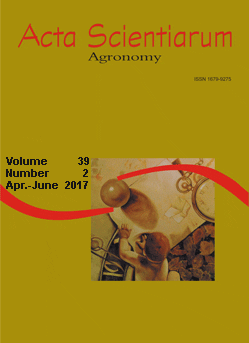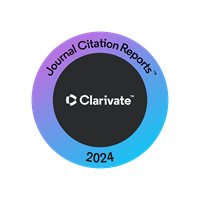<b>Physiological and sensorial quality of Arabica coffee subjected to different temperatures and drying airflows
Abstract
The objective of this study was to evaluate the correlation between a group of physiological variables (electrical conductivity, potassium leaching, and germination percentage) and a group of drying kinetics variables (drying time and drying rate) in addition to verifying the relation between drying kinetics variables and coffee quality as a function of processing type, temperature, and drying airflow. Coffee drying was conducted in a fixed-layer dryer at two temperatures and two airflows. After drying, an evaluation of the physiological and sensorial quality was conducted. Based on the results obtained, the following conclusions were drawn: coffee that is processed via a dry method is more sensitive to mechanical drying with heated air than coffee processed via a wet method, resulting in poor physiological performance; airflow does not interfere with the physiological quality of pulped and natural coffees; a temperature increase from 40 to 45°C resulted in a decrease in the physiological quality only for pulped coffee; and an increase in the drying rate as a result of an increase in the drying temperature to 40°C had a negative effect on the sensorial quality of pulped coffee.
Downloads
DECLARATION OF ORIGINALITY AND COPYRIGHTS
I Declare that current article is original and has not been submitted for publication, in part or in whole, to any other national or international journal.
The copyrights belong exclusively to the authors. Published content is licensed under Creative Commons Attribution 4.0 (CC BY 4.0) guidelines, which allows sharing (copy and distribution of the material in any medium or format) and adaptation (remix, transform, and build upon the material) for any purpose, even commercially, under the terms of attribution.





















































